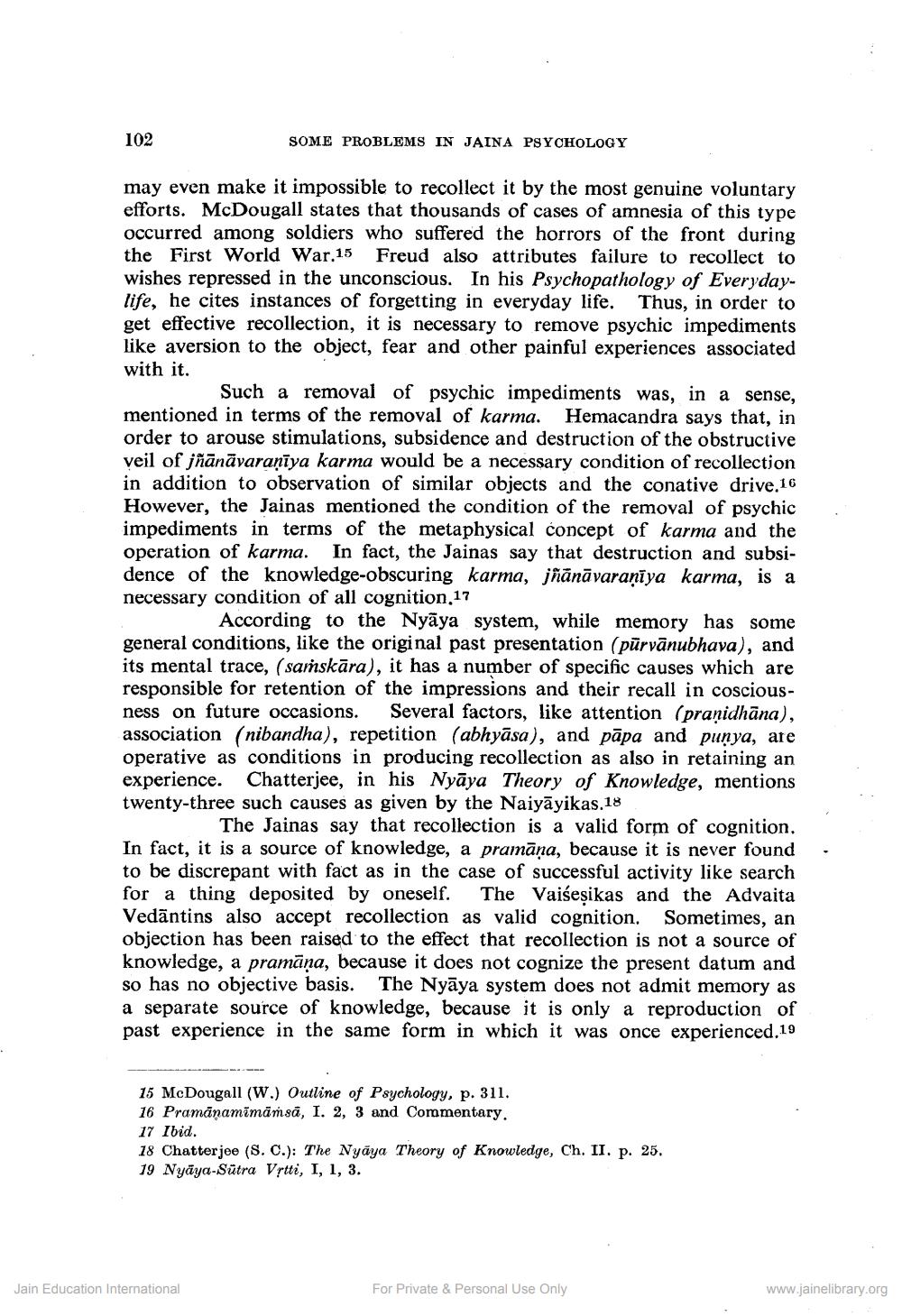________________
102
SOME PROBLEMS IN JAINA PSYCHOLOGY
may even make it impossible to recollect it by the most genuine voluntary efforts. McDougall states that thousands of cases of amnesia of this type occurred among soldiers who suffered the horrors of the front during the First World War.15 Freud also attributes failure to recollect to wishes repressed in the unconscious. In his Psychopathology of Everydaylife, he cites instances of forgetting in everyday life. Thus, in order to get effective recollection, it is necessary to remove psychic impediments like aversion to the object, fear and other painful experiences associated with it.
Such a removal of psychic impediments was, in a sense, mentioned in terms of the removal of karma. Hemacandra says that, in order to arouse stimulations, subsidence and destruction of the obstructive veil of jñānāvaraṇīya karma would be a necessary condition of recollection in addition to observation of similar objects and the conative drive.16 However, the Jainas mentioned the condition of the removal of psychic impediments in terms of the metaphysical concept of karma and the operation of karma. In fact, the Jainas say that destruction and subsidence of the knowledge-obscuring karma, jñānāvaranīya karma, is a necessary condition of all cognition.17
According to the Nyāya system, while memory has some general conditions, like the original past presentation (pārvānubhava), and its mental trace, (sarskāra), it has a number of specific causes which are responsible for retention of the impressions and their recall in cosciousness on future occasions. Several factors, like attention (pranidhāna), association (nibandha), repetition (abhyāsa), and pāpa and punya, are operative as conditions in producing recollection as also in retaining an experience. Chatterjee, in his Nyāya Theory of Knowledge, mentions twenty-three such causes as given by the Naiyāyikas.18
The Jainas say that recollection is a valid form of cognition. In fact, it is a source of knowledge, a pramāna, because it is never found to be discrepant with fact as in the case of successful activity like search for a thing deposited by oneself. The Vaiseșikas and the Advaita Vedāntins also accept recollection as valid cognition. Sometimes, an objection has been raised to the effect that recollection is not a source of knowledge, a pramāņa, because it does not cognize the present datum and so has no objective basis. The Nyāya system does not admit memory as a separate source of knowledge, because it is only a reproduction of past experience in the same form in which it was once experienced.19
15 McDougall (W.) Outline of Psychology, p. 311. 16 Pramānamīmāṁsā, I. 2, 3 and Commentary. 17 Ibid. 18 Chatterjee (S. C.): The Nyāya Theory of Knowledge, Ch. II. p. 25. 19 Nyāya-Sūtra Vrtti, I, 1, 3.
Jain Education International
For Private & Personal Use Only
www.jainelibrary.org




